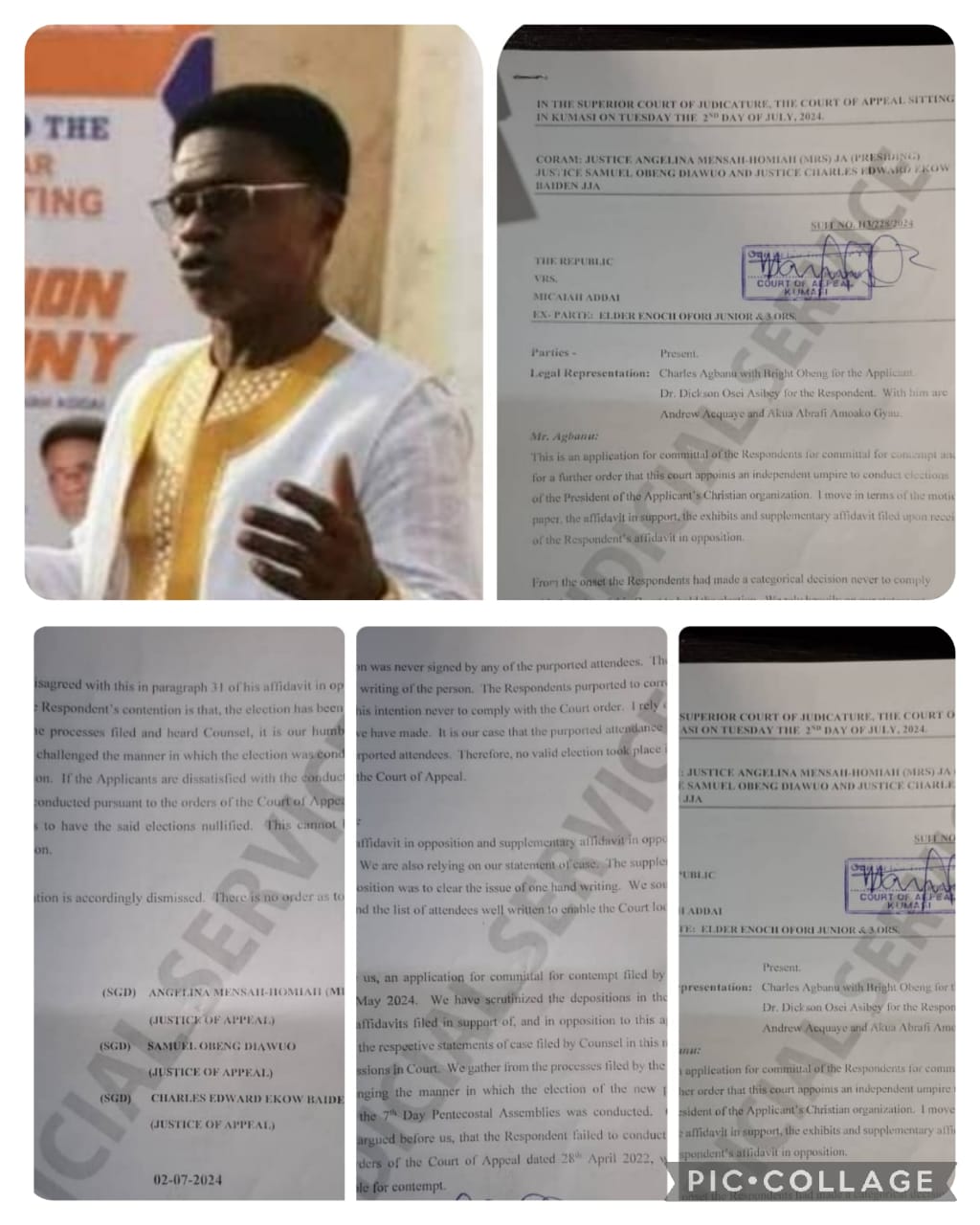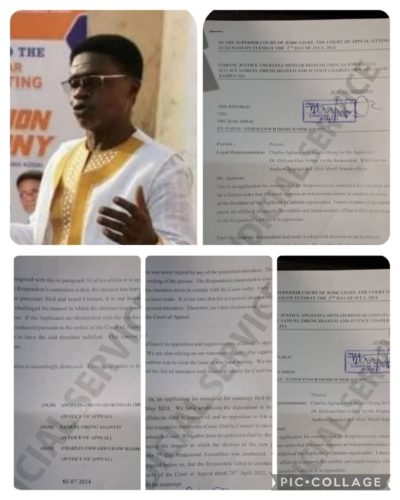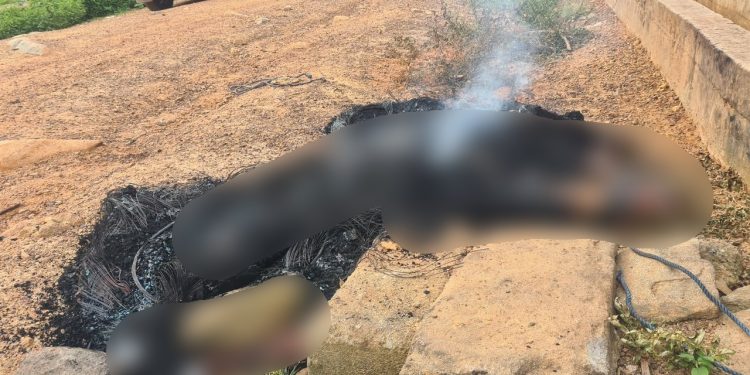Courts Refuse To Show Transparency In The Association of 7th Day Pentecostal Assemblies’ 2009 Elections Dispute ?


In 2009, the Association of 7th Day Pentecostal Assemblies (ASDA) found themselves embroiled in a legal battle that pitted religious autonomy against the established legal framework.
This was when the President and founder of the church, Elder Enoch Ofori Snr passed on.
The dispute centered around the church’s internal elections to choose a new president, and the court’s refusal to apply the law despite a previous judgments against a polygamous defendant, Pastor Macaiah Akwasi Addai whom the courts had earlier appointed him to be an Acting president until courts fina verdict.
This complex case raises questions about the interplay of religious freedom and secular law.
The dispute arose when a faction of the church been Elder Enoch Ofori Jnr and group (plaintiffs) in the church challenged the election process organized single handedly by Pastor Akwasi Addal and group (defendants), arguing procedural violations contrary to the church’s constitution.
Elder Enoch Ofori Jnr and group sought legal redress, demanding intervention from the courts. The case eventually reached the Supreme and Appeal Courts, who were tasked with applying the law to the church’s internal affairs.
However, the courts faced a delicate balancing act, while the law clearly dictates the principles of fair elections and due process, intervening in the internal affairs of a religious organization could be seen as violating the principle of religious freedom.
This dilemma was further complicated by the earlier judgment against Pastor Akwasi Addai, who had been found guilty of violating the church’s constitution which applies in election procedures to elect a substantial president in the absence of a sitting president.
It is of the authority that it was the same Supreme and Apeal courts who had in their earlier judgements found the defendants (pastor Akwasi Addal and group) guilty.
But the courts have since refused to apply the law in the ASDA case, despite the precedent set in the Addai case, raised eyebrows and sparked debate.
What seems suspicious is the fact that the Supreme court accepted pastor Akwasi Addal apologies on contempt charge for using its name to conduct unlawful elections to declare himself as a president of the church, the sitting judges failed to tell the pastor to declare his elections as null and void.
From intensive interviews critics argued and alleged that the courts had succumbed to pressure from religious groups and had undermined the principle of equality before the law.
They pointed out that the courts’ decision implicitly condoned the possibility of religious organizations operating outside the legal framework, potentially leading to abuses and undermining the rule of law.
Proponents of the court’s stance, on the other hand, argued that the case involved a complex interplay of competing interests. They emphasized the importance of respecting religious freedom and allowing faith communities to govern their internal affairs without undue state intervention.
They also argued that the ASDPA case presented unique challenges, requiring a nuanced approach that considered the specific circumstances.
The 2009 legal battle concerning the Association of 7th Day Pentecostal Assemblies remains a landmark case in the ongoing debate between religious autonomy and secular law.
The court’s decision, while controversial, highlights the complexities of navigating this sensitive territory. This case serves as a reminder that balancing religious freedom with the rule of law requires careful consideration and a commitment to upholding both fundamental principles.
We produce below the conflictual statements from the courts for public attention.
Stay tuned.
We produce below documents and Addai’s apology to the Supreme court among others for public comments
By James Donkor, Kumasi.





